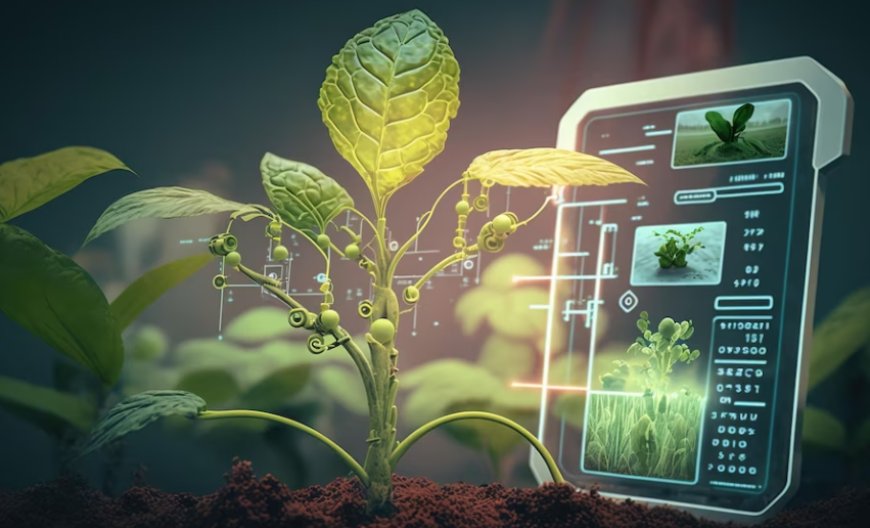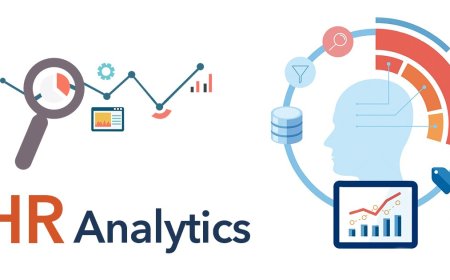The Future of Farming: utilizing Data Analytics in Agriculture
Discover the amazing power of data analytics in modern agriculture! Find out how using data-driven insights is changing the way farmers grow crops, making them even better and helping to create a sustainable future for farming.

Traditional farming practices vary across different regions and cultures, but they generally involve manual methods and a close connection to nature. In many traditional farming systems, farmers rely on hand tools such as hoes and ploughs, and animal power like oxen for ploughing fields. Seeds are often saved from previous harvests, contributing to a cycle of self-sufficiency. Traditional farming practices have been the backbone of agriculture for centuries, relying on time-tested methods passed down through generations. These practices often involve manual labour, basic tools, and a deep connection to nature.
But now Data analytics in agriculture represents a transformative shift, bringing a data-driven approach to decision-making in the farming sector. This integration involves collecting, analyzing, and interpreting various data points to optimize agricultural processes and improve overall productivity. Farmers can leverage advanced technologies such as sensors, drones, and satellite imagery to gather data on soil health, weather patterns, crop conditions, and more. This wealth of information enables them to make informed decisions regarding irrigation, fertilization, and pest control, leading to more efficient resource utilization. Data analytics in agriculture also plays a crucial role in precision farming. By employing algorithms and machine learning models, farmers can receive insights into crop yield predictions, disease detection, and optimal harvesting times.
Need for innovation in farming practices
The need for innovation in farming practices is imperative as agriculture faces various challenges in the modern world. Population growth, climate change, resource constraints, and evolving consumer demands necessitate a shift towards more efficient, sustainable, and resilient farming methods. Here are key reasons why innovation is crucial in agriculture
-
Population Growth: With the global population steadily increasing, there is a growing demand for food. Innovation in farming practices is essential to meet the rising need for agricultural products and ensure food security.
-
Climate Change: Changing climate patterns pose a threat to traditional farming methods. Innovative practices can help farmers adapt to unpredictable weather conditions, mitigate the impact of climate change, and build resilience in agriculture.
-
Resource Efficiency: Innovation can lead to more efficient use of resources such as water, fertilizers, and energy. Precision farming technologies, for example, enable farmers to optimize resource allocation, reducing waste and environmental impact.
-
Technological Advancements: Embracing technology, including drones, sensors, and data analytics, allows farmers to gather real-time information about their crops, soil, and weather. This data-driven approach enhances decision-making and improves overall productivity.
-
Sustainability: Sustainable farming practices are essential for preserving the environment and ensuring long-term agricultural viability. Innovations in organic farming, agroecology, and regenerative agriculture contribute to a more sustainable and environmentally friendly approach to farming.
-
Consumer Preferences: Changing consumer preferences towards healthier and more ethically produced food drives the need for innovation. Farmers need to adapt to these preferences, exploring new crops, organic methods, and ethical farming practices.
-
Economic Viability: Innovations that enhance productivity and reduce costs contribute to the economic viability of farming operations. This is crucial for the livelihoods of farmers and the overall stability of the agricultural sector.
Complexities of modern agricultural practices
Modern agricultural practices have become increasingly complex due to various factors. One significant aspect is the adoption of advanced technologies, such as precision farming, genetic engineering, and data analytics. These technologies aim to enhance efficiency, yield, and sustainability in agriculture.
-
Tech-Driven Farming: Modern agriculture relies heavily on technology like GPS-guided tractors and drones, with about 80% of farms globally using precision techniques (FAO).
-
Sustainability Challenges: Intensive farming practices harm the environment, contributing to soil degradation and water pollution. A Nature Sustainability study warns that these practices lead to biodiversity loss, affecting around 40% of insect species.
-
Economic Shifts: Small family farms are decreasing, replaced by larger industrial operations. USDA data shows a 4% decline in small farms and a 6% increase in large farms.
-
Climate Change Impact: Erratic weather patterns due to climate change disrupt crop cycles, causing up to a 25% global crop yield decline by 2050 (IPCC).
-
Supply Chain Vulnerability: Globalized agriculture faces supply chain disruptions, as seen in the COVID-19 pandemic. The World Bank reports that about 40% of globally produced food is lost or wasted along the supply chain, exacerbating food insecurity.
How can data analytics certification revolutionize farming practices?
Enhanced Decision-Making:
Big data analytics in agriculture, coupled with certification, equips farmers with the skills to make data-driven decisions. By analyzing vast datasets, farmers can optimize crop choices, resource allocation, and management strategies, leading to more informed and efficient decision-making.
Precision Farming Integration:
A certification in big data analytics in agriculture allows farmers to integrate precision farming techniques seamlessly. Through the analysis of real-time data on weather, soil conditions, and crop health, farmers can fine-tune their practices, minimizing waste and maximizing yields.
Predictive Modeling Expertise:
Certification in data analytics in agriculture empowers farmers with expertise in predictive modelling. This skill enables the forecasting of crop yields, identification of potential pest threats, and anticipation of disease outbreaks, allowing for proactive measures to safeguard crops and enhance productivity.
Optimized Resource Management:
Certified individuals in big data analytics in agriculture can optimize resource management by analyzing and interpreting data on water usage, fertilizer application, and energy consumption. This leads to more sustainable and resource-efficient farming practices.
Improved Supply Chain Efficiency:
Farmers with a certification in data analytics can contribute to the optimization of the agricultural supply chain. By understanding market trends and consumer preferences through data analysis, they can better align their production with demand, reducing waste and improving overall supply chain efficiency.
Advanced Crop Monitoring Techniques:
Certification in big data analytics in agriculture provides farmers with advanced crop monitoring skills. Utilizing satellite imagery and sensor data, certified individuals can detect early signs of crop diseases, nutrient deficiencies, and other issues, enabling timely intervention and preventive measures.
Strategic Planning with Data Analytics:
Certified farmers can use data analytics to inform strategic planning. Whether adapting to market trends or mitigating risks, the ability to analyze and interpret data ensures that farmers can make strategic decisions that positively impact their overall farming practices.
The future of farming is undeniably intertwined with the integration of data analytics in agriculture. Traditional farming practices, rooted in manual labour and a deep connection to nature, are facing unprecedented challenges posed by population growth, climate change, and evolving consumer demands. The complexities of modern agricultural practices, driven by technological advancements, sustainability challenges, economic shifts, climate change impacts, and supply chain vulnerabilities, underscore the urgency for a transformative shift. Certified individuals equipped with big data analytics skills are poised to navigate the complexities of modern agriculture, contributing to sustainable, efficient, and resilient farming practices.











































